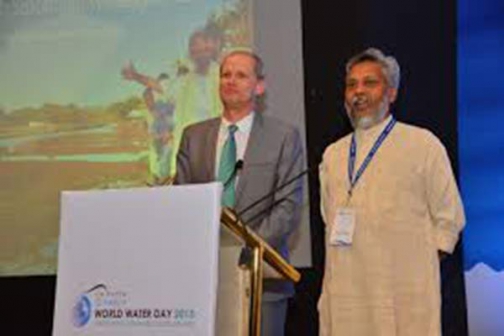×
The Standard e-Paper
Home To Bold Columnists

Since 1990, Stockholm has, without fail, hosted an annual water pilgrimage bringing together policy makers, water experts, businesses, researchers, scholars, parliamentarians, innovators and thinkers in the water sector.
Unremittingly, this annual event has continued to generate fresh ideas as it unveils reformist innovations year after year, while introducing perspectives on water that influence research trends as well as the quality and outlook of water governance and diplomacy globally.